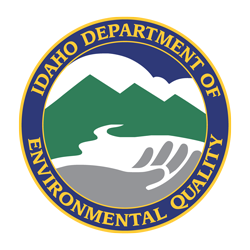POTWs are typically only designed to treat domestic sewage and are not designed to treat toxic or non-conventional waste. Consequently, discharges from industrial and commercial sources can cause problems at the POTW (e.g., pass through, interference). Pretreatment, or the process of treating wastewater before discharge to the POTW, can reduce or eliminate many of the pollutants that the POTW cannot treat, which allows the POTW to:
To apply for a permit, go to DEQ’s E-Permitting system. For assistance, please contact the IPDES E-Permitting Support at (833) 473-3724 or IPDESE-Permitting@deq.idaho.gov
This accordion will not appear on the screen
In cases where a SIU discharges to a POTW without an approved pretreatment program, the SIU must apply for a permit from DEQ. This permit outlines the requirements to comply with both federal and local requirements and includes authorization to discharge from the municipality. DEQ inspects all state-permitted indirect industrial dischargers annually.
Municipalities with approved pretreatment programs must meet, at a minimum, the requirements in 40 CFR 403. DEQ performs audits of each approved program every five years and inspections of each program every two years. In addition, DEQ may accompany the approved program on inspections of its SIUs.
Municipalities that have been notified of the requirement to develop a pretreatment program, or that choose to develop a program voluntarily, must submit a complete program package to DEQ for approval. Program packages must comply with 40 CFR 403.8 and must include all manuals, templates, and procedures intended for use in the program.
Municipalities for which DEQ acts as the control authority are delegated day-to-day compliance to ensure SIUs comply with the DEQ-issued permit. Additionally, the SIU must report to DEQ semi-annually and when out of compliance with permit conditions.
EPA promulgated pretreatment standards to reduce discharges of mercury and other metals from dental offices into POTWs by requiring amalgam separators for facilities regularly placing and removing amalgam. All dental facilities must submit a one-time compliance report certifying:
- Whether they discharge amalgam
- If a separator is installed
- If the facility is in compliance with best management practices for cleaning vacuum lines, water lines, and chair-side traps.

